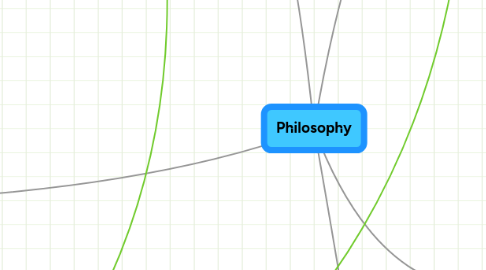
1. Aristotle
1.1. All things will change
1.1.1. Some will decay and die
1.1.2. Some will not decay and die
1.1.3. Some things will not change
1.1.3.1. Underpinning everything there is something
1.1.3.1.1. Eternal and immutable
1.2. Four causes
1.2.1. Material
1.2.1.1. What its made of
1.2.2. Efficient
1.2.2.1. How its made
1.2.3. Formal
1.2.3.1. The expression/idea/plan
1.2.4. Final
1.2.4.1. The overall aim
1.2.5. A POSTERIORI
1.2.5.1. Dependant on experience
2. Design arguement
2.1. A POSTERIORI
2.2. Teleological
2.3. St Thomas Aquinus
2.3.1. Summa Theologica
2.3.1.1. The world could not have happened by random chance
2.3.1.1.1. It has to have been designed
2.4. The whole design argument is based on this idea
2.4.1. The worlds complexity, pattern, order, function and purpose suggest design
2.4.1.1. God
2.5. William Paley
2.5.1. Walking in heath and see's a...
2.5.1.1. Stone
2.5.1.1.1. Blind physical forces of the universe
2.5.1.2. Watch/Nature
2.5.1.2.1. Shows the elements of complexity, pattern, order, function and purpose
2.5.2. Uses an ANALOGY
2.6. Challenges
2.6.1. David Hume
2.6.1.1. Order = yes Design = no
2.6.1.2. Reducto ad absurdem
2.6.1.2.1. He takes the argument seriously and to its extreme
2.6.1.2.2. Many designers of a watch = Many designers of the world
2.6.1.3. How good is the design?
2.6.1.3.1. It can't be very good
2.6.1.4. Pascal
2.6.1.4.1. 'The God of Abraham, Isaac and Jacob - not the God of the Philosophers'
2.6.2. Charles Darwin
2.6.2.1. Theory of Natural Selection
2.6.2.1.1. The strongest survive to pass on their genes
2.6.2.1.2. Can explain the diversity of life without referring to ethereal beings
2.6.2.1.3. Kills the design argument at the very first stage
2.6.3. John Stuart Mill
2.6.3.1. Poor design
2.6.3.1.1. Not all powerful but is all good
3. Cosmological Arguement
3.1. Reliese on something else for its existance
3.1.1. A POSTERIORI
3.2. God is a cause within a cause
3.2.1. Plato
3.2.2. The final cause
3.2.2.1. Aristole
3.2.3. Timeless Omniscient Omnipotent Omnipotent
3.2.3.1. Unchangable + immuutable
3.2.3.1.1. Perfect
3.3. Everything can 'be' or 'not be'
3.3.1. So, given infinate time, everything will 'not be' AT SOME POINT
3.3.1.1. If there was once nothing, then nothing can come from it
3.3.1.1.1. Something has to exist - Angels(beings with infinate life)
3.3.1.1.2. Everything has to be caused and uncaused
3.4. Challenges
3.4.1. There is a jump from something that created the universe to God
3.4.2. William of Ockham
3.4.2.1. Things can cause something and then not conserve it
3.4.2.2. Is there a link between cause + effect?
3.4.2.3. Is God the most perfect being ATM or the most perfect being ever?
4. Plato
4.1. Allegory of the cave
4.1.1. The cave
4.1.1.1. The visible world
4.1.2. The man
4.1.2.1. Socrates/Plato
4.1.3. The prisoners
4.1.3.1. Humanity
4.1.3.1.1. Unable to understand those who are 'enlightened'
4.1.4. The shadows + echos
4.1.4.1. What we perceive as the whole of reality
4.1.4.1.1. Empirical knowledge
4.1.5. Outside
4.1.5.1. The eternal and immutable world
4.1.5.1.1. Contains the perfect forms
4.1.6. The Sun
4.1.6.1. Enlightenment
4.1.6.2. Form of the Good
4.1.7. Going out
4.1.7.1. Struggle for knowledge
4.1.7.2. Battle against bodily desires
4.1.8. Return to cave
4.1.8.1. The attempt to explain new ideas + philosophy
4.2. Theory of the forms
4.2.1. A PRIORI
4.2.1.1. Independent of experience
4.2.2. The soul drove us to the Realm of the Forms
4.2.3. Forms = entities that exist independently of our world
4.2.3.1. Perfect, timeless and immutable
4.2.4. Our soul recognises reflections of the forms in this world
4.2.5. 5 main forms
4.2.5.1. Good
4.2.5.2. Beauty
4.2.5.3. Wisdom
4.2.5.4. Truth
4.2.5.5. Justice
4.3. Critisisms
4.3.1. People's idea of beauty etc. is very different
4.3.1.1. e.g. Tracy Emin
4.3.1.2. Therefore can the forms be universal?
4.3.2. Plato doesn't account for the forms origin
4.3.2.1. Can they be modelled on forms that pre-existed them
4.3.2.1.1. If so that means that they aren't timeless and immutable
4.3.3. Many people don't seek the light, the truth and goodness
4.3.3.1. Plato said that this is what the soul does
5. Evil
5.1. St Irenaeus
5.1.1. Image --> Likeness
5.1.1.1. Imperfect -->Perfect
5.1.1.1.1. We will get to know God at the end of time
5.1.2. John Hick
5.1.2.1. Suffering is to make the world 'a vale of soul making'
5.1.3. Theodicy
5.1.3.1. Suffering is necessary to progress our souls
5.1.3.1.1. Safeguards Gods omnipotence, benevolence and evil in one argument
5.2. Genesis
5.2.1. Creator
5.2.1.1. Gave mankind freedom = free will
5.2.2. Our purpose is to be good and seek good
5.2.3. Benevolent Omnipotent Omniscient
5.3. John Stuart Mill + Júrgen Moltman
5.3.1. Said God was not all powerful

